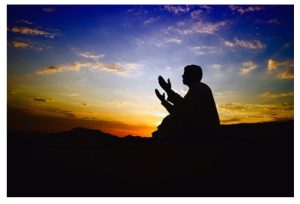Letters to the Editor
Q: Can we get direct guidance from Allah(swt)?
Aaisha Fatima,
On Email
YMD
 All guidance is direct from Allah (swt). None can guide except He. It is divulged into the hearts of the people when they meet with the conditions set by Him, and is endowed in proportion to their commitment to the truths.
All guidance is direct from Allah (swt). None can guide except He. It is divulged into the hearts of the people when they meet with the conditions set by Him, and is endowed in proportion to their commitment to the truths.
Initially, the-system-at-work only shows the truth. If a person acknowledges it, accepts it, and with a firm intention, takes the initial steps towards fulfilling its demands – all of them – he is given the power to act; which, if done in earnest, the Tawfeeq to attempt more arrives. If he refuses, he is refused.
But if your question is, “Does Allah guide whom He will,” so that, if somebody is faring well in religion then, it is because Allah chose him or her, and if somebody is not faring well in religion, then, it is Allah who did not choose him or her… if that is the understanding, then, the idea is wrong. Allah says, “As for those who struggled in Us, We will surely guide him on to Our Paths.” (The Qur’an 29: 69)
A third point may be clarified. A false concept has been floated by pseudo-Sufis, offering apology for their ignorance of the Shari`ah. It is to the effect that knowledge, and so, by implication, guidance, can be directly obtained from Allah through a channel they call `IlmulLadunni. It is a false concept. This is not the place for elaboration. Those interested, and they are so few, if any, may refer to Alusi’s commentary on verse 56, Surah 18.
Q: I am very much interested in spiritual ideas. I need to know: what is the definition of the ‘soul’ in the holy Qur’an, and what is its nature?
Sameer Rao,
On Email
YMD
No one knows what a soul is, except that its presence gives life to the humans, and its departure means death to their physical bodies. And nobody will ever know the nature of the soul. This is because Allah said, “They ask you about the soul. Tell them, ‘The soul is a command of my Lord; and you have not been given knowledge, but a little’” (The Qur’an 17: 85).
Scientists deny that there is anything called the soul. This is because they have tried to replace the leadership of the priestly class with their own leadership; and because they don’t like to be answerable to anyone. Yet, almost secretly, they have, by placing a dying man in a sealed room whose walls were laid with lead, tried to catch the escaping soul; but they could not.
Little wonder though. Some physical particles, such as the neutrinos, are neutrally charged and are massless. They travel at the speed of light, and pass through the earth – from one end to the other – unimpeded. Billions of them pass through every square inch of the earth every microsecond. Their presence is detected only indirectly. If they cannot trap a physical, material, thing, can they the non-physical?
As regards spiritual ideas, it does not require a study of the soul. This is the abyss into which followers of other religious systems fell and fall.
 In Islam, if a person believes in oneness of Allah, understands His Attributes through the Qur’an and Sunnah, and then applies the knowledge and its concomitance to everyday life, in love-filled obedience, he is spiritual. The higher his knowledge, and the purer its application in matters small or big, the more refined his soul becomes, and higher is the state of his spiritual attainment.
In Islam, if a person believes in oneness of Allah, understands His Attributes through the Qur’an and Sunnah, and then applies the knowledge and its concomitance to everyday life, in love-filled obedience, he is spiritual. The higher his knowledge, and the purer its application in matters small or big, the more refined his soul becomes, and higher is the state of his spiritual attainment.
Other ways suggested by pseudo-sufis, peers, shuyukh and spiritualists of all brands are escape routes from the hard path.
Q: Why don’t you publish a biography of Ibn Taymiyyah to answer those who deny Taqlid in his name?
Sameer Ahmad,
On Email
YMD
There is no need to publish the biography of IbnTaymiyyah, simply to deny the allegations of the Madhāhib-deniers that he was a ghayrmuqallid too. IbnTaymiyyah was a Hanbali. However, since he had attained the status of ijtihad, in certain matters he pronounced his personal opinions. But he remained a muqallid, a Hanbali in majority of affairs, despite his vast knowledge.
Says the Encyclopedia of Fiqh prepared in Kuwait about him:
“He is Ahmad b. `Abd al-Haleem b. `Abdul Salam, b. Taymiyyah, of Harran, then of Dimashq, Taqiuddin, an Imām and Sheikh al-Islam: a Hanbali.”
Says the Saudi magazine, Al-Fiqh al-Islami, in its short biography: “Ibn Taymiyyah – he was a Hanbali Mujtahid.”
There has never been any controversy among the scholars over this issue. But this new group which refuses to follow any of the four Madhāhib consists of ignorant sycophants – mostly youths – who know Islam as much as kick-starters but, with a recently acquired identity, act proud, and unable to submit themselves to any reformative group such as Jama`at-e-Islami or Tablighee Jama`at, who will break their pride by demanding them to submit to Islam unequivocally, pretend to “know-all” when encountering those who are more ignorant than them in order to prove their superiority and, if possible, win prominence. They are as empty of knowledge as a drum which can create a lot of noise but little tune.
So, giving them material from Arabic sources as proof of their ignorance is as good as quoting Sanskrit to them. Further, they are not interested in the life of Ibn Taymiyyah. They are interested in using him; and, particularly to draw attention that their rebellion against the Ummah has precedence in Ibn Taymiyyah. Not surprising, they all – to the last man – talk and behave like they are little Ibn Taymiyyahs. They proselytize simple – but dopey – men and women, working in the lanes, avoiding main streets where they could come face to face with scholars. They are little interested in Ibn Taymiyyah. If he was alive today, they would denounce him for being a Hanbali.
Q: Are there any guidance as to what extent we are on right path?
Dr. M. A. Khaliq Mohammed,
On Email
YMD
Allah has said in the Qur’an, “We have shown him the two highways” (90: 10). What highways are these? And how have they been shown?
The unanimous meaning is that which actually comes from a hadith. Referring to the two highways (al-Najdayn), the Prophet said: “The two are two paths: the path of good and the path of evil; and He (Allah) hasn’t made the evil path dearer to you than the path of good.”
 Najd in Arabic is the path that coils around through the mountains. Apart from imagery, clarity could have been another point in the choice of the word: a mountain path is clearly visible to the eye. So are right and the wrong clearly distinguishable.
Najd in Arabic is the path that coils around through the mountains. Apart from imagery, clarity could have been another point in the choice of the word: a mountain path is clearly visible to the eye. So are right and the wrong clearly distinguishable.
The last part of the Prophetic statement suggests that although both the paths of evil and good are shown, a man is not torn from any one side. By saying that the evil path has not been made dearer, the implication is that both are equally attractive, leaving a person to make his choice. So, he cannot say, after committing a sin, that he had an unconquerable urge from within for the sin. This is the error modern scientists commit. They identify some molecules in the DNA as responsible for a man’s wrong choice, such as, his tendency to homosexuality, and thus free him of any responsibility.
Allah also said elsewhere in the Qur’an: “Then He inspired to it, its wickedness and its piety.” (90: 8)
In this verse, “it” is for the inner self. Allah has placed within it the primary note about what is wickedness and what is piety; so that a man unschooled, living far away from civilized life, still has some sense of right and wrong. With that awareness present in every soul, the option of choosing either one or the other is left to the human free will. They are responsible for consequences.
So, to the question, “Are there any guidance as to what extent we are on right path,” the answer is, yes, we all have the sense of right and wrong within ourselves. When a man hands over a bank note to a widow, his inner self confirms that what he did was right, and feels comfortable. In contrast, when a man deceives another, his inner self criticizes the act, and he feels uncomfortable about sit. Primarily then, this is the guidance from within, which no man or woman misses, because it is Allah’s own placement in their inner selves.
However, in addition, and by His mercy, Allah has also sent a revelation, the Qur’an and Sunnah, which confirm and strengthen the sense of right and wrong; in addition to identifying some that humans could not identify themselves. So, wherever a man feels unsure of what he is doing is right or wrong, he can refer to the two. Whatever confirms with the Qur’an and Sunnah is “right,” and whatever contradicts the two is “wrong.”
In short, we have two judges: one within ourselves, and another outside, which both tell us whether our actions are right or wrong.
Finally, there are the consequences of our actions. They tell us whether we are going right or wrong. If a man is doing right, he is rewarded with peace and tranquility. That assures him that what he is doing is right, and perhaps he must add on more of the deeds to enjoy greater benefits. If he does wrong, he is rewarded with loss of peace, inner dissatisfaction and unhappiness. He must look at his deeds and make amendments.
You have used the words, “to what extent.” Well, if you wish to know precisely and meticulously, then, you must make an in-depth study of the Qur’an and Sunnah. Their study will reveal those aspects of your deeds that are now hidden, and help refine them, greater and greater. Like stainless steel which shines more and more with greater and greater polish, your soul will shine more and more with more and more meticulous application of the message the Qur’an and Sunnah bestow.
Q: One of my labourers met with an accident in the mill, and his hand got badly cut by a saw. We had to get it operated, and he had to go through vascular and plastic surgery. The expenditure was over a lakh. He is slowly recovering. Expected recovery time is about a year. But obviously, he will not be 100 percent fit. The fault was his. It was loss of concentration and slight negligence. And the problem is that if you give them safety equipment such as helmet, gloves, shoes, etc., they don’t like to wear them. Now he is not working and the other labourers are demanding that I should pay his salary although he is covered by insurance. I would like to know what my rights are, for how long am I to keep him, and how much should I pay?
XYZ,
On Email
YMD
Since he was careless, it was his fault, and he has to bear the entire responsibility.
Further, if, from your side, precautionary measures were there, then, your liability is all the more out of the question.
Thirdly, if he is covered by governmental insurance, then, why the other labourers are demanding that you pay him salaries? Are they trying to blackmail you?
At best, he has some moral right, the extent of which will have to be decided by you and not by the employees. Whatever you decide to give would be Sadaqah and you will be rewarded for it; and those moral rights extend to his colleagues too.
Q: As we grow saffron in our fields here in Pampore Kashmir, please mention what is the nisab (zakat) on saffron?
FarooqBhat,
On Email
YMD
The Zakah on Za`fran (saffron) is traditionally mentioned as over five munns. However, you are advised to refer to Deoband about the exact amount over the size of your plot, and, essentially, on the kind of land, whether Kharaji or `Ushri; for which you will have to look into the land ownership and previous deeds of sale and purchase.
Q: I am a regular reader of YMD and I have a question. Is it permissible in Islam to marry a boy who works in stock exchange? Please do send me a reply as soon as possible. Our decision is dependent on your answer.
S. K.,
On Email
YMD
There is no harm in working for stock exchange so long as one does not deal in shares of establishments that sell wine.
As for the decision depending on our answer, we believe it should depend on your parents’ advice.
Q: I am an eighteen years old girl. I aspire to become a fiction writer and wanted to know if it’s the right kind of vocation for a Muslim girl. My brother informed me that it could affect my Akhirat. I needed to know how fiction stories can contribute towards sending out a wrong message, and how this profession can be used for a good cause.
Maryam Syed,
On Email
YMD
 The advice you received is not surprising. Today’s Muslim’s reaction to every idea that is good and constructive is to say no to it. It has sort of become automatic brain-reflection.
The advice you received is not surprising. Today’s Muslim’s reaction to every idea that is good and constructive is to say no to it. It has sort of become automatic brain-reflection.
Contrary to the fear, fiction writing is not un-Islamic. To be sure, if the intention is to benefit the readers, it could win rewards.
People’s tendency in our contemporary world, to treat fiction as truth, and truth as fiction, opens a door for the reformers to penetrate their minds, and infuse ideas in a fictitious, subtle way, for the readers to accept them as truths of life. And novels are one of the best ways of doing it. In fact, many Urdu female writers in India used novels as the medium to pass on the culture of the times to the next generation. Naseem Hijazi wrote novels to depict past history. Abdul Hameed Sharar wrote novels highlighting and treating various social issues. Nineteenth century Urdu literature (Hindi did not exist then), is quite similar to the Victorian age literature of Europe.
Many authors of the past Muslim world used it to roll out good ideas, and change the mind-sets. The Victorian age fiction writers immensely influenced the minds of several generations that followed them. The transmission of the so-called Christian Morals owes much more to the writers of this age than to the Church itself where attendance was as fast declining as reverence and credibility.
Authors like Charles Dickens, Thomas Hardy, Henry James, Dostoyevsky, Franz Kafka, Agatha Christie, Mark Twain, Thoreau, Bernard Shaw (with drama as the medium), Emily Bronte, Eliot, Poe, Zola and many others, identified the ills of their society and presented ideas of reformation through their fictional works.
It is the writers of junk novels, sex manias, atheists, and the morally corrupt, who came after them, who have brought havoc to the Western societies, and led them to their present-day decay. Meanwhile, the fine literature is sinking lower and lower in the ravines of the Net, read by few, and understood by fewer.
So, go ahead with your ambition. But, you should realize that nothing will be achieved fast, to bring you a name, or even to be noticed. You have to work hard for next ten years, attempting a few courses in between, say a Master’s degree in English literature, to start with. Let this not be a boil in the cauldron.
Q: I wish to know what the economic system of Islam is?
Mohammed Khan,
On Email
YMD
The Islamic economic system is a simple, uninvolved, and coherent one. It is simple to follow because it is natural; that is, it agrees with the innate nature of the things. Its main features are as follows:
- – It does not allow for interest-bearing dealings, in any form, however subtle, however little, and however hidden. Thus a major strategy for sucking the wealth from the bottom to top, is blocked at the start.
- – Secondly, it does not allow for capital to make capital, money to make money. Labor on part of the moneyed, must be a necessary component of any economic activity.
- – Thirdly, it does not allow for virtual money to make real money. Finally,
- – It does not allow for making speculative money; or, money out of speculations.
Its main benefits can be observed in market economies. Recently, even the while the world capitalistic economies were stumbling, the market economies of Muslim countries were doing well – in some places, actually thriving.
The present-day industrial economy, which was largely brought into being by capital provided by interest-bearing banks, has been led to the brink by the very banks that were its backbone, so that the economy is now in a vicious circle. It is hard to judge how much of it is real,  and how much virtual. Therefore, it is hard to predict where it will lead to. Will it suffer a bubble-burst, and, how long will that be avoided by resorting to money-printing strategy, are open questions that no economist can answer.
and how much virtual. Therefore, it is hard to predict where it will lead to. Will it suffer a bubble-burst, and, how long will that be avoided by resorting to money-printing strategy, are open questions that no economist can answer.
On the other hand, since the industrial economy of the Muslim states (and not the market economy) blindly followed the model given by the West, they are subject to same upheavals. Further, because they blindly followed the Western model, Muslim countries have not been able to develop an Islamic model, far from generating an Islamic economic system. The limbo lasts.
In fact, for want of ethical integrity and professional expertise, even a small-scale version of Islamic economic system could not be developed by Muslims and vociferous Islamic propagandists endlessly talking about the Islamic economic system.
So, insomuch as the non-Muslims are concerned, who are the main players in global economic activities, an Islamic economic system remains no more than some loose talk or an utopian dream of the armchair economic sophomores.

